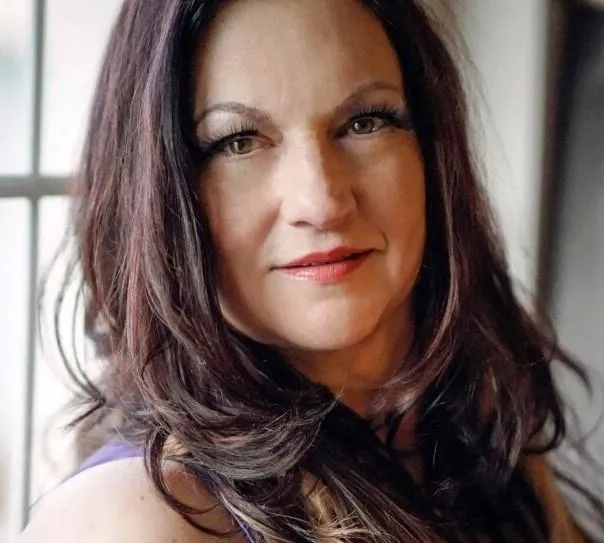Blog

From Suffrage to Equality: Milestones in Women’s Liberation
From Suffrage to Equality: Milestones in Women’s Liberation
The right to vote is one of the most powerful tools of democracy, yet for centuries, women were denied this basic freedom. Voting is not just a civic duty; it is a symbol of the long and hard-fought battle for women’s equality. Our right to cast a ballot today exists because of the sacrifices, struggles, and determination of the women who came before us. As we celebrate their legacy, we must also recognize our responsibility to honor their fight by exercising this hard-won right.
The Early Fight for Suffrage
The battle for women’s suffrage began long before it was won. In the 19th century, women across the world were advocating for the right to vote as a means to gain control over their lives, their families, and their futures. In the United States, the women's rights movement formally took shape at the Seneca Falls Convention in 1848, where leaders like Elizabeth Cady Stanton and Lucretia Mott boldly declared that women should have the same political rights as men. The idea of women voting was radical, and these early suffragettes faced ridicule, opposition, and in many cases, violence for their advocacy.
Still, they persisted. In the late 1800s, suffrage movements gained traction, with women organizing across the U.S., Europe, and beyond. Leaders like Susan B. Anthony and Sojourner Truth dedicated their lives to the cause, raising awareness, building alliances, and tirelessly campaigning for change.
Despite decades of activism, the right to vote for women remained elusive. However, as the 20th century dawned, the suffrage movement found new momentum, fueled by the rising demand for gender equality.
The Road to Victory
The turn of the century saw a growing number of countries recognize women’s right to vote. New Zealand led the way in 1893, becoming the first self-governing nation to grant women suffrage. This victory was followed by Australia, Finland, Norway, and Denmark in the early 1900s.
In the United States, suffragists continued to push forward. As part of the National Woman's Party and the National American Woman Suffrage Association, activists like Alice Paul and Carrie Chapman Catt used a variety of tactics—petitions, protests, hunger strikes, and marches—to demand attention to their cause. They argued that without the right to vote, women could not have a say in the laws and policies that affected their lives.
The struggle reached its peak during World War I, when women’s significant contributions to the war effort—both at home and on the frontlines—highlighted the injustice of their exclusion from political participation. After decades of organizing, sacrifice, and relentless pursuit of equality, women in the U.S. achieved victory with the passage of the 19th Amendment in 1920, which granted women the right to vote.
The Continuing Fight for Equality
While the 19th Amendment was a milestone, it did not ensure voting rights for all women. For many women of color, particularly Black, Latina, Indigenous, and Asian women, barriers like literacy tests, poll taxes, and racist intimidation tactics still blocked access to the polls. It wasn’t until the Voting Rights Act of 1965 that discriminatory practices were officially outlawed, making it easier for all women to exercise their right to vote.
Since then, women have continued to fight for equal representation and opportunities in all areas of public life. The right to vote has been an essential tool in driving progress on issues like reproductive rights, workplace equality, and protection against gender-based violence.
Our Mothers, Grandmothers, and Aunts: Remembering the Women Who Fought for Us
It’s important to remember that the right to vote was not simply handed to women—it was fought for by our mothers, grandmothers, aunts, and countless women whose names may not be in history books but whose contributions are no less significant. These women organized, protested, and, in some cases, were jailed for the belief that their voices—and the voices of future generations—mattered.
When we go to the polls, we stand on their shoulders. Women who marched in the suffrage parades, who endured taunts and threats, who fought for civil rights and voting rights, did so because they believed in the power of democracy to bring about change. They wanted a future where their daughters and granddaughters would have the ability to shape the world around them.
The Power of Our Vote Today
Today, voting is more important than ever. The issues that affect women’s lives—healthcare, reproductive rights, equal pay, and violence against women—are all influenced by the officials we elect. Every time we vote, we use our voice to advocate for policies that can uplift women, improve communities, and ensure fairness for all.
However, voter turnout among women, particularly younger women, is often lower than it could be. Some may feel disillusioned, while others may believe their vote doesn’t matter. But as we reflect on the incredible struggles of the women before us, we are reminded that every vote does matter. Those who fought for our rights knew this; they understood the potential for change that comes with each vote cast.
Honoring Their Legacy

The best way to honor the legacy of the women who fought for our right to vote is by continuing to show up at the polls. Whether in local elections, national elections, or special ballots, each vote is a testament to the progress women have made—and a commitment to the ongoing fight for equality. When we vote, we not only shape our future but also pay tribute to the countless women who never had that chance.
Let’s continue their legacy of resilience, courage, and change by making sure our voices are heard.
“Love yourself first so you know what you deserve”
-UNKNOWN
KRISLEEN JONES
CEO & Owner Of
Photography By Krisleen
Phone: (719)310-8058

Contact
KRISLEEN JONES
CEO & Owner Of
Photography By Krisleen
Phone: (719)310-8058



